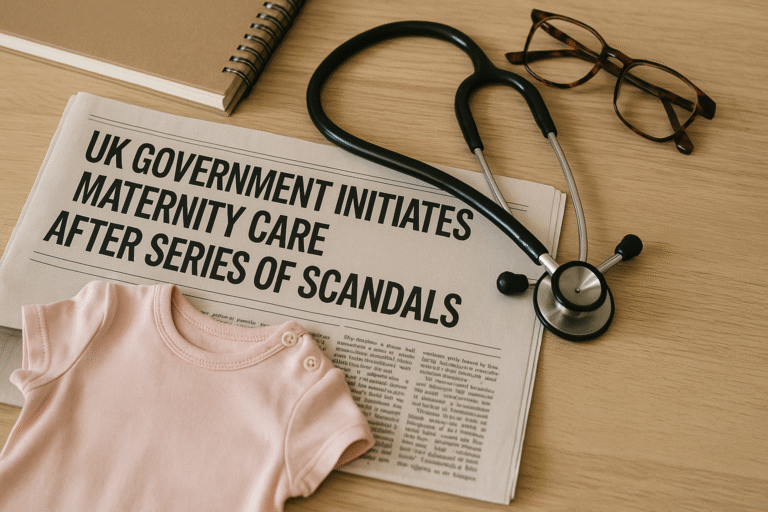In recent events, a significant judicial decision has emerged concerning President Biden’s abortion privacy rule, which is creating ripples across the healthcare, legal, and political arenas in the United States. To understand the implications of this ruling, it’s crucial to delve into the broader context of the matter, examining the legal precedents, political motivations, and potential impacts on healthcare practices and patient privacy.
The legal battleground over abortion in the U.S. has been a contentious landscape rife with divergent views that span across ethical, moral, and political philosophies. The ruling in question directly challenges the current administration’s efforts to safeguard patient privacy in the context of abortion care—a move intended to uphold and reinforce the established protections that have long been debated in the courts.
President Biden’s abortion privacy rule was introduced as part of an executive effort to strengthen the confidentiality of patient information, particularly for those seeking reproductive healthcare services. This initiative emerged as a response to growing concerns about patient data being potentially used in ways that could lead to the criminalization or targeting of individuals who opt for abortion services. The rule sought to ensure that sensitive health information is not disclosed without patient consent, aligning with the broader goals of the Health Insurance Portability and Accountability Act (HIPAA), which serves as a cornerstone of medical privacy laws in the U.S.
The judicial ruling against this policy represents a pivotal moment that underscores the ongoing tension between federal regulatory actions to protect privacy and individual states’ rights to enact laws that reflect their own stances on abortion. The presiding judge argued that the privacy rule could impinge on states’ abilities to enforce their own abortion laws, particularly those that may involve limitations on or outright bans of abortion services.
One of the significant implications of this ruling is its potential to alter how healthcare providers manage patient data concerning reproductive health services. Medical practitioners are now faced with the challenging task of navigating conflicting federal and state regulations, where the risk of legal exposure could affect their ability to offer abortion services without compromising patient confidentiality.
Furthermore, this judicial decision reverberates at the policy-making level, serving as a catalyst for renewed debates around the sanctity of patient privacy versus the state’s interest in regulating healthcare practices. Advocates for reproductive rights have voiced concerns that undermining privacy protections could lead to a chilling effect, where patients may be deterred from seeking necessary medical attention for fear of legal repercussions or exposure.
On the flip side, proponents of the ruling argue that it restores a level of sovereignty for states, allowing them to tailor abortion laws in line with their constituents’ values and perspectives. They claim that a one-size-fits-all federal approach does not accommodate the diverse range of views held across the country, thereby necessitating state-specific regulations.
As the discourse unfolds, it’s important to reflect on the broader societal implications. Patient trust in the healthcare system could be eroded if personal health information is perceived as vulnerable to legal scrutiny. This scenario could disproportionately affect marginalized communities, who may already face barriers to accessing healthcare and legal protection. The fear of stigmatization and reprisal could further marginalize these populations, exacerbating existing health disparities.
In light of these concerns, there is an urgent call from numerous healthcare organizations and civil liberties groups for a comprehensive review of how patient information is handled within the framework of reproductive services. Advocacy for robust privacy measures is gaining momentum, emphasizing the ethical obligation to protect patient confidentiality as a fundamental aspect of healthcare.
Amid this legal entanglement, the Biden administration is likely to explore various avenues to safeguard patient privacy while addressing the challenges posed by state regulations. This could involve strategic advocacy for legislative reforms, fostering dialogue between federal and state authorities, and potentially revising existing policies to find a balance that upholds privacy without undermining legal enforcement.
Moreover, this ruling highlights the ongoing need for improving public awareness about personal data rights within the healthcare system. Patients should be informed of their rights regarding personal health information to make educated decisions about their care. Educational initiatives and transparent communication from healthcare providers about privacy protections could play a vital role in rebuilding trust and assurance within the patient community.
In conclusion, the judge’s ruling against Biden’s abortion privacy rule brings to the forefront a complex intersection of healthcare policy, legal rights, and ethical obligations. It serves as a reminder of the enduring debate over reproductive rights in America, demonstrating how legal decisions can significantly influence the landscape of personal privacy, state sovereignty, and healthcare practices. As the legal proceedings continue to evolve, stakeholders across the spectrum—patients, healthcare providers, policymakers, and advocates—must engage in meaningful discourse to navigate these challenges and uphold the values of privacy and autonomy in the healthcare domain.



